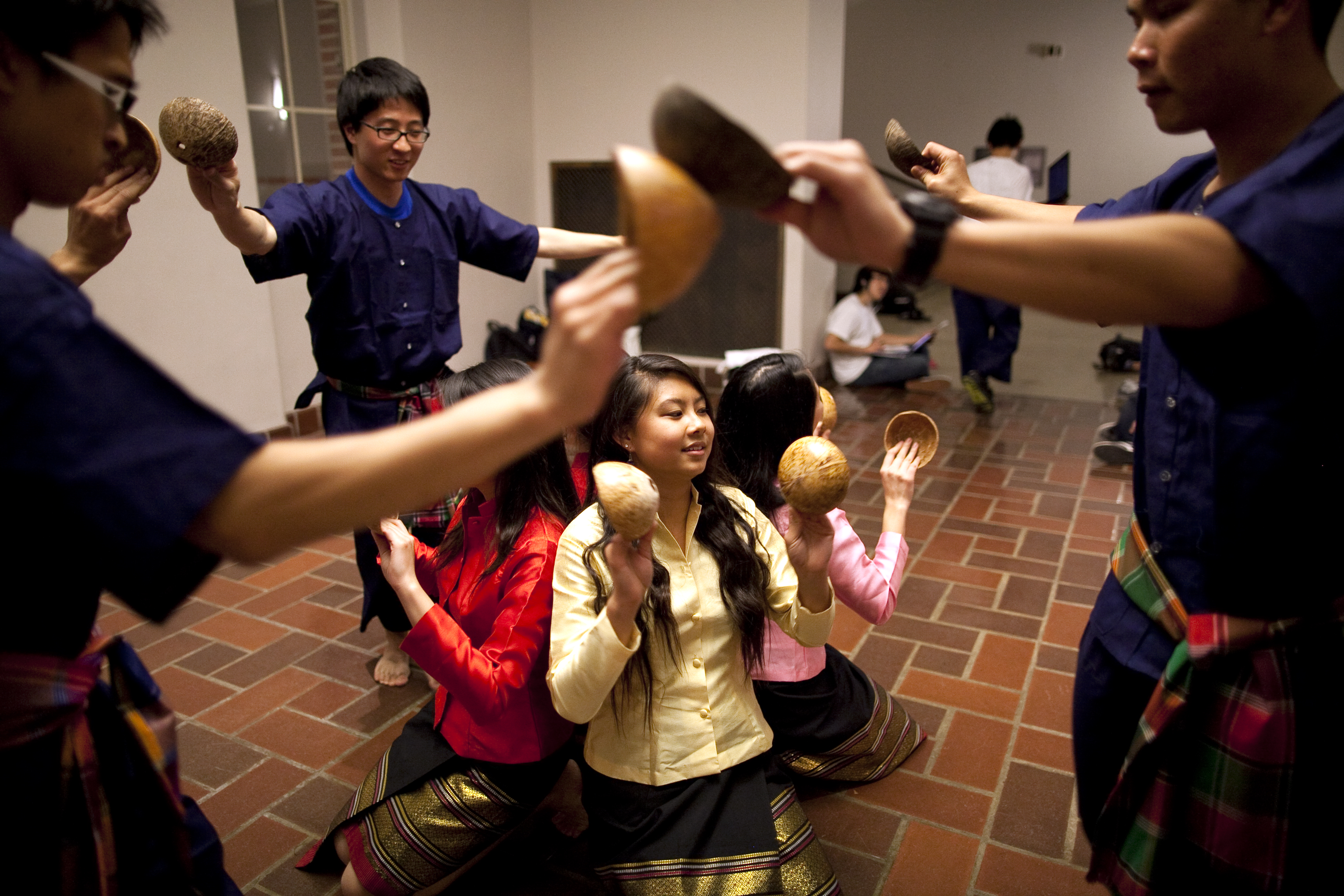
On Saturday, Thai Culture Night will include a drama performance titled “Fallen” that incorporates traditional dances, instruments and Muay Thai.
A beautiful half-bird, half-woman creature flies down to Earth to partake in a ritual that signifies her entrance into womanhood. A fame-seeking hunter, Chai, sets out to capture this mythical creature, only to find that he cannot after he falls in love with her.
On Saturday, these scenes will come to life as part of Thai Smakom’s 14th annual Thai Culture Night.
The event will include the drama performance “Fallen” that incorporates traditional dances, instruments and Muay Thai, a Thai form of kickboxing.
Olivia Mekdara, a fourth-year applied linguistics student and co-director of this year’s Thai Culture Night, co-wrote the script for the drama. She said this year’s show differs from those of recent years in that it will focus on traditional as opposed to modern-day Thailand.
“(Co-director Natsha Siri, a second-year ethnomusicology student, and I) wanted a show that would involve the imaginative and the visual. There will be more nature and rural life, creatures and animals. We wanted to create something that would take (the audience) into a different world,” Mekdara said.
According to Mekdara, the drama is loosely based on elements of Thai folklore and Hindu traditions of the “Ramayana,” an ancient Sanskrit epic.
References to these traditions include the half-bird, half-woman hybrid, or kinaree, and Hanuman, a monkey deity.
Mekdara said “Fallen” will include Muay Thai, which is incorporated into fight scenes, as well as a segment for modern hip-hop dances performed by Thai Smakom Modern. The drama will also include Looktoong, an upbeat form of Thai country song and dance, and traditional dances such as the Coconut Dance, or Serng Krapo, from the central and northeastern regions of Thailand.
According to Paricha Duangtaweesub, a third-year chemical engineering student, Serng Krapo originates from the agricultural area of Thailand in the northeastern region of Isaan and is influenced by the Lao culture.
“Even though I grew up in Thailand, I was never actually exposed to the traditional dances like the Coconut Dance. I’m a part of that this year, and every year I learn something new in terms of culture and performances through this culture night,” Duangtaweesub said.
In Serng Krapo, dancers hold two coconut shells and clap them against those of the other performers while kneeling or moving in a formation.
According to Mekdara, this number is one of the club’s most upbeat performances for the night and depicts young women who are reaching maturity.
The event will also incorporate instrumental music created with traditional Thai instruments including the khim, a trapezoidal stringed board that is struck with small hammers, the ching, a small set of finger cymbals, and the sor duang, a high-pitched, two-stringed fiddle.
Alex Wonnaparhown, a third-year microbiology, immunology and molecular genetics student, will play the role of a brother in the village in the drama and perform in Serng Krapo and Thai Smakom Modern. He said he views the culture night as an opportunity to pass on Thai culture and traditions from international students to other group members while also presenting it to those not of Thai origin.
“Having an insight into another culture other than your own opens your mind to the other types of people in the world. It adds to you as a person when you know about others,” Wonnaparhown said.
